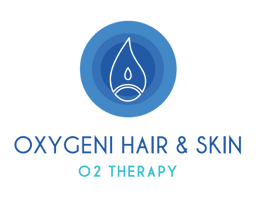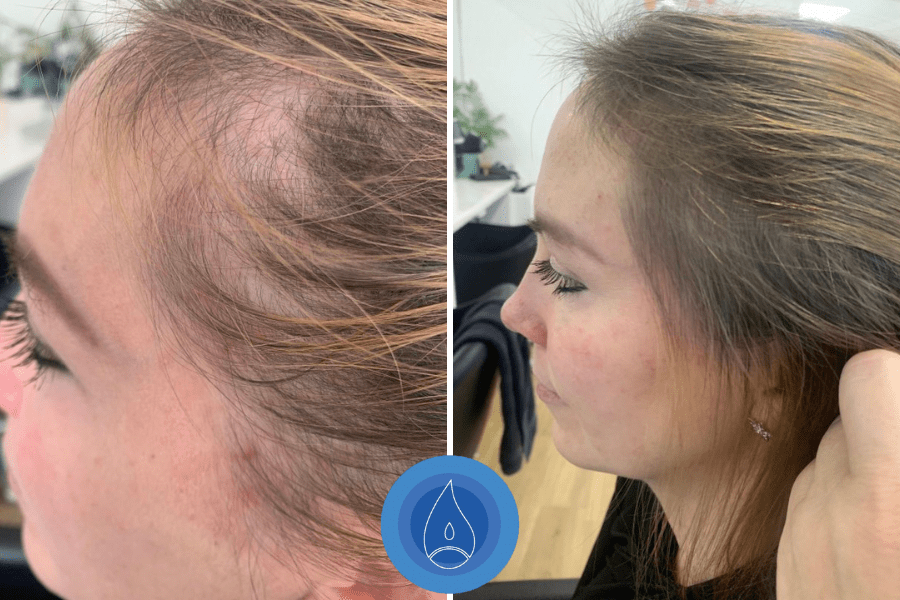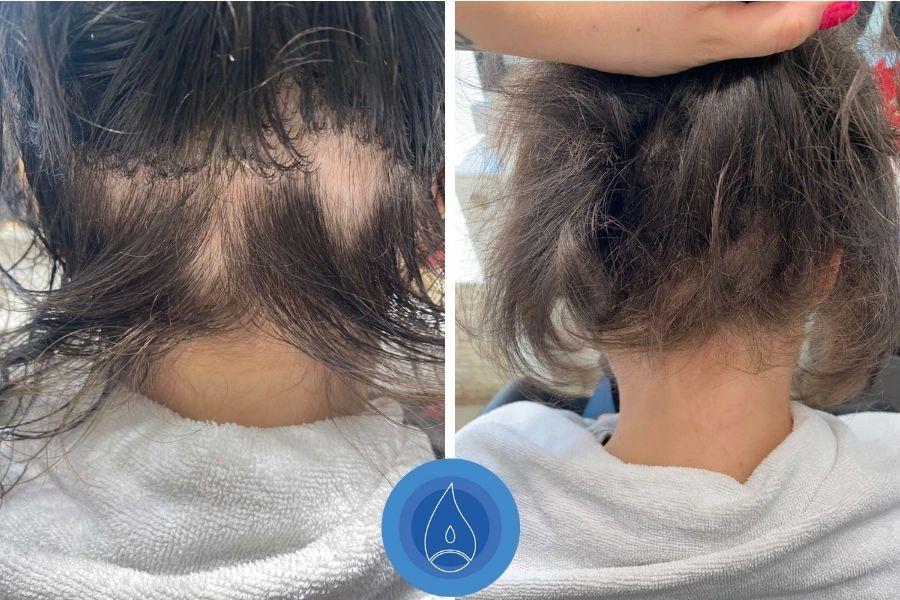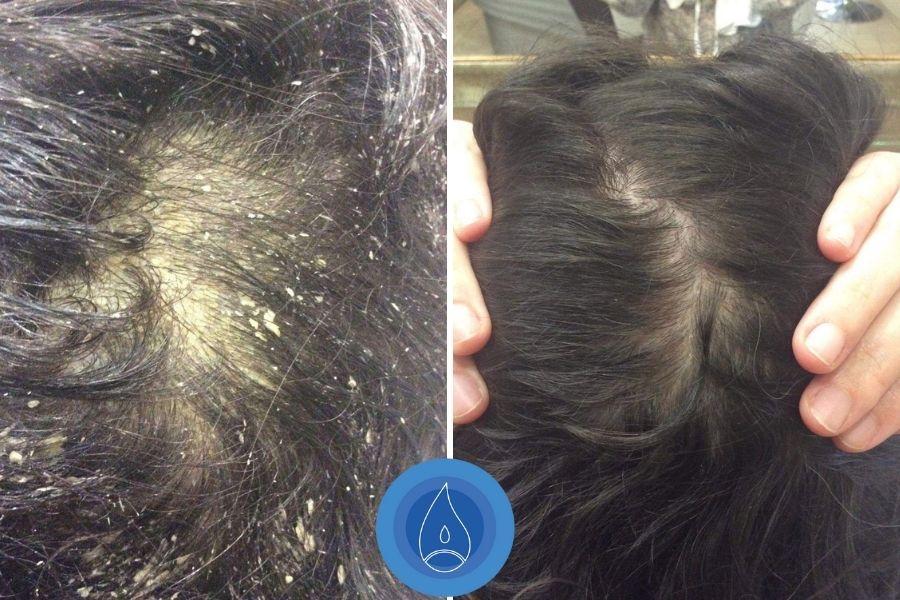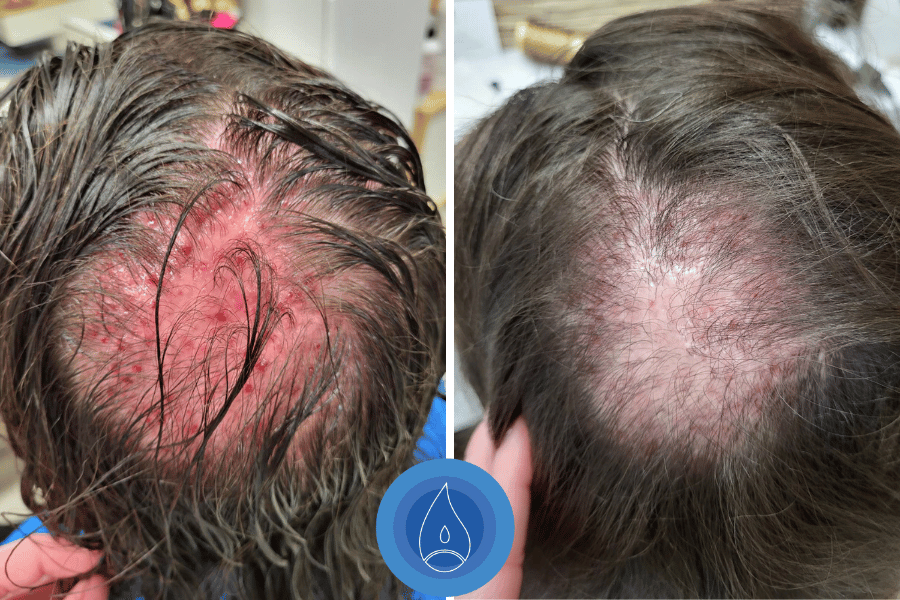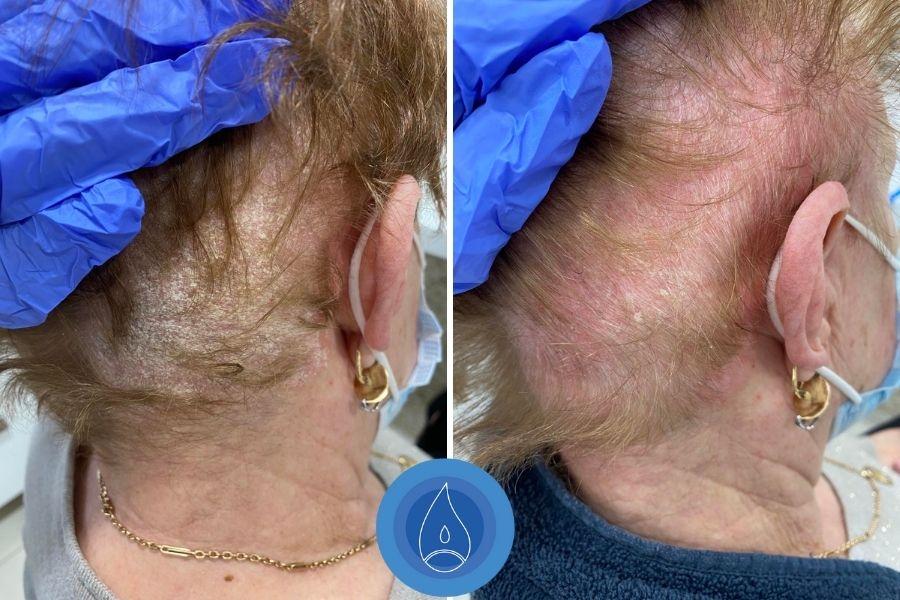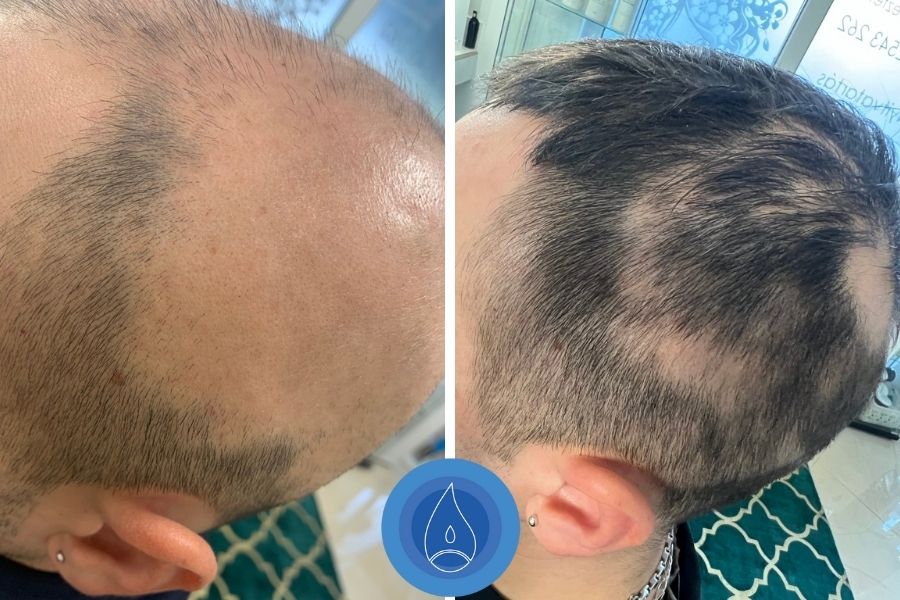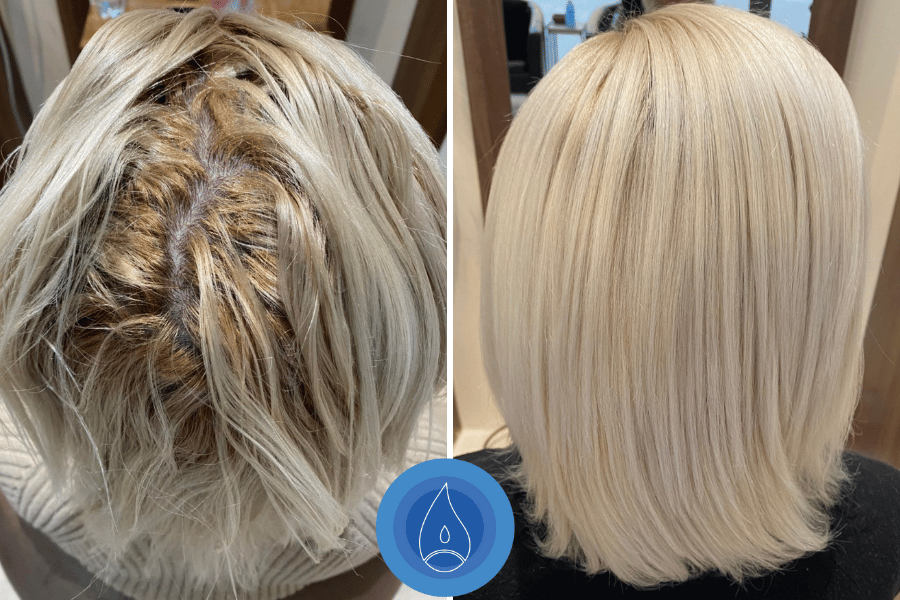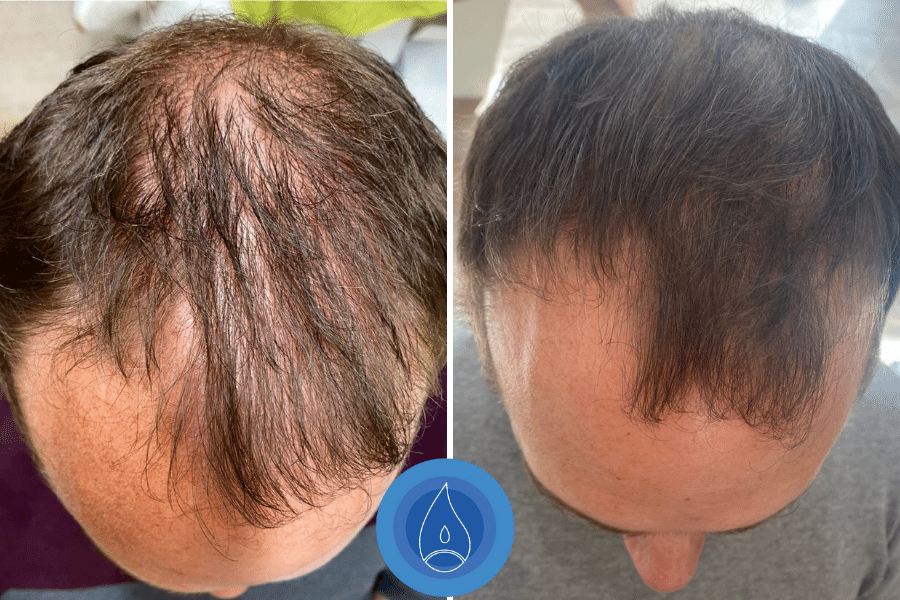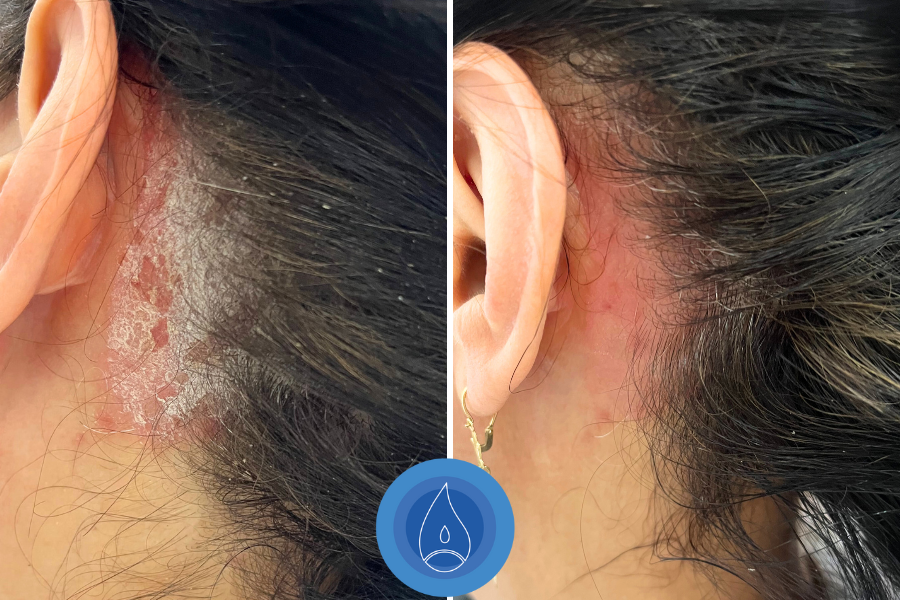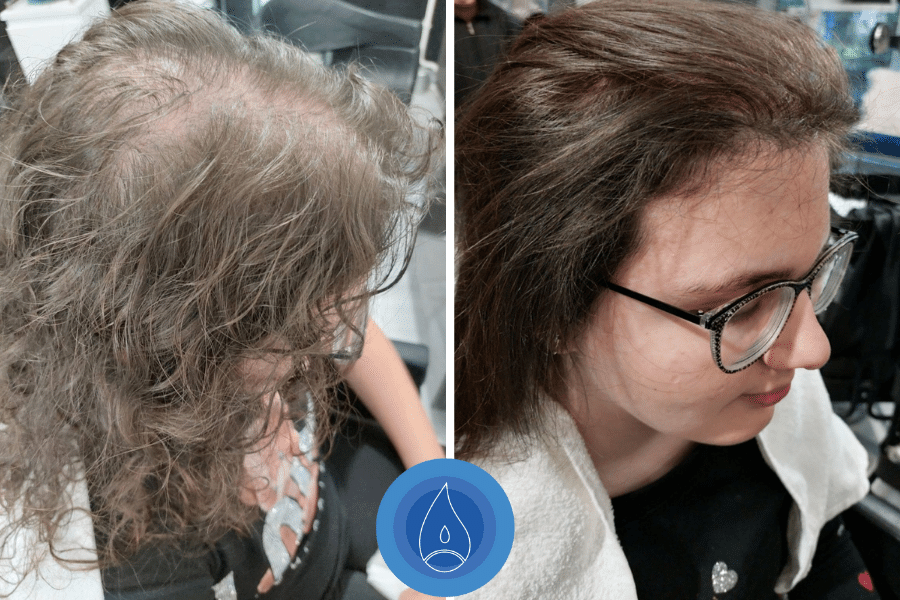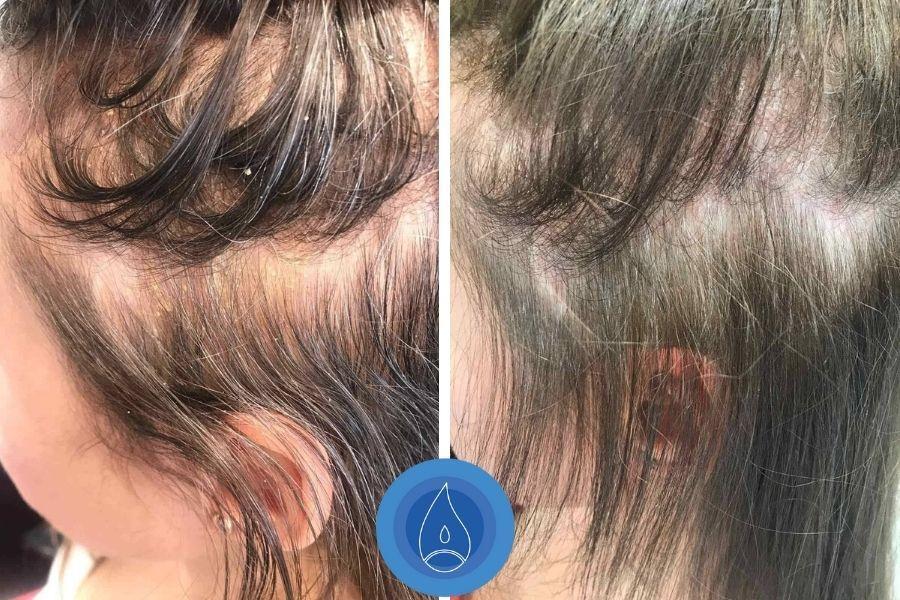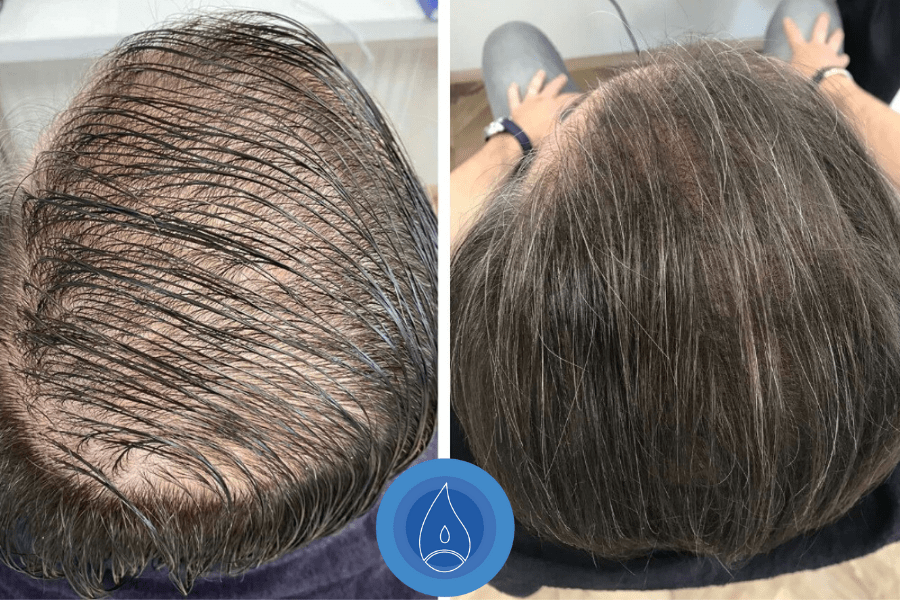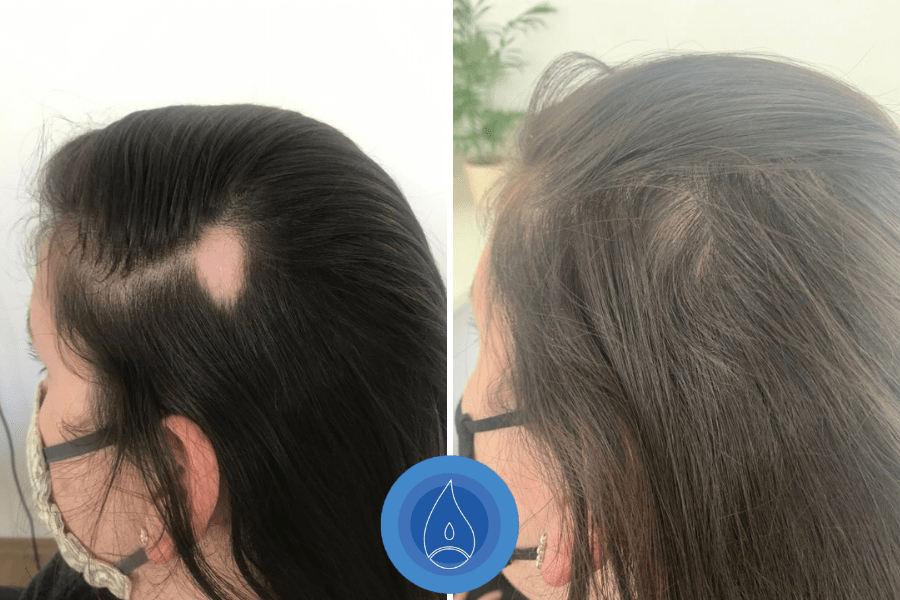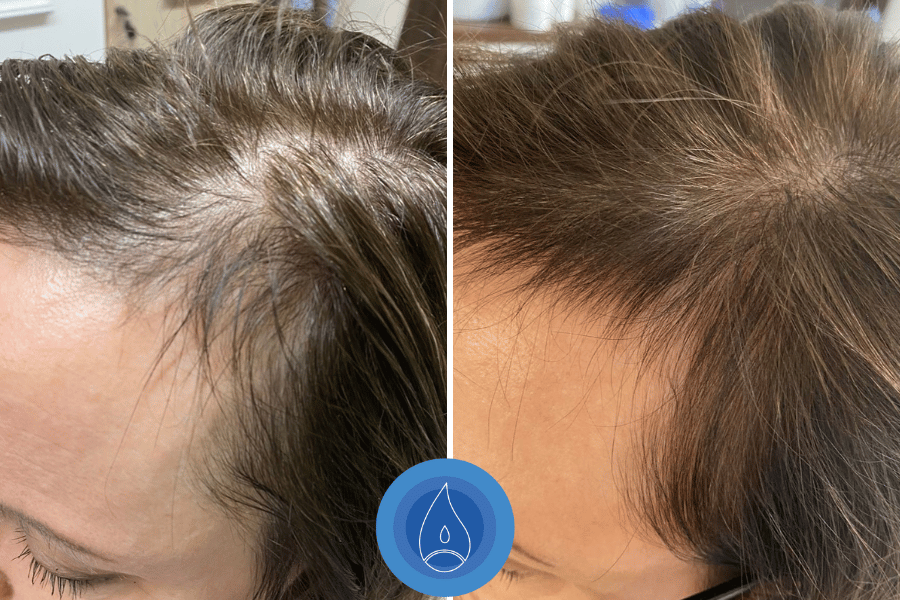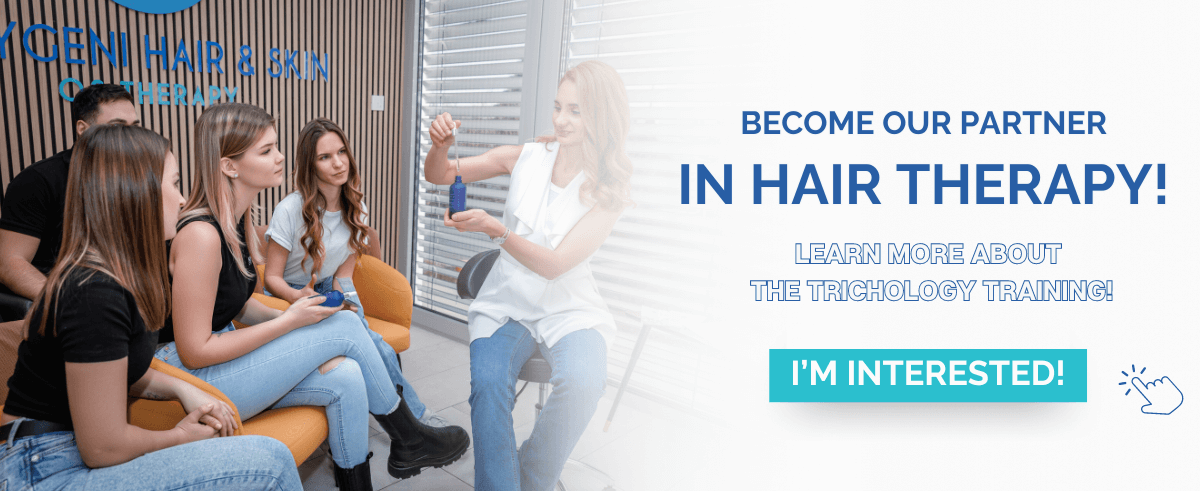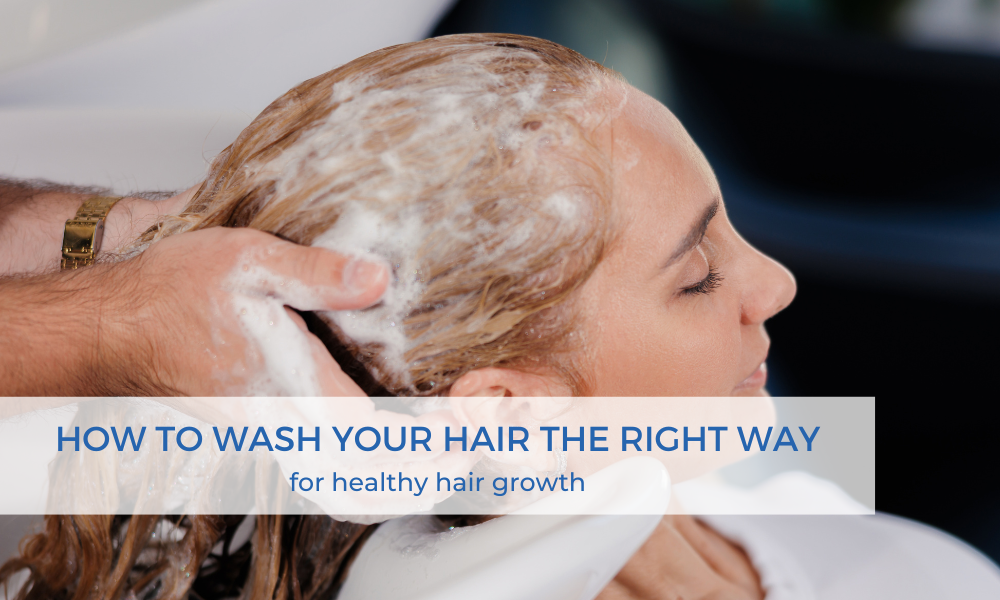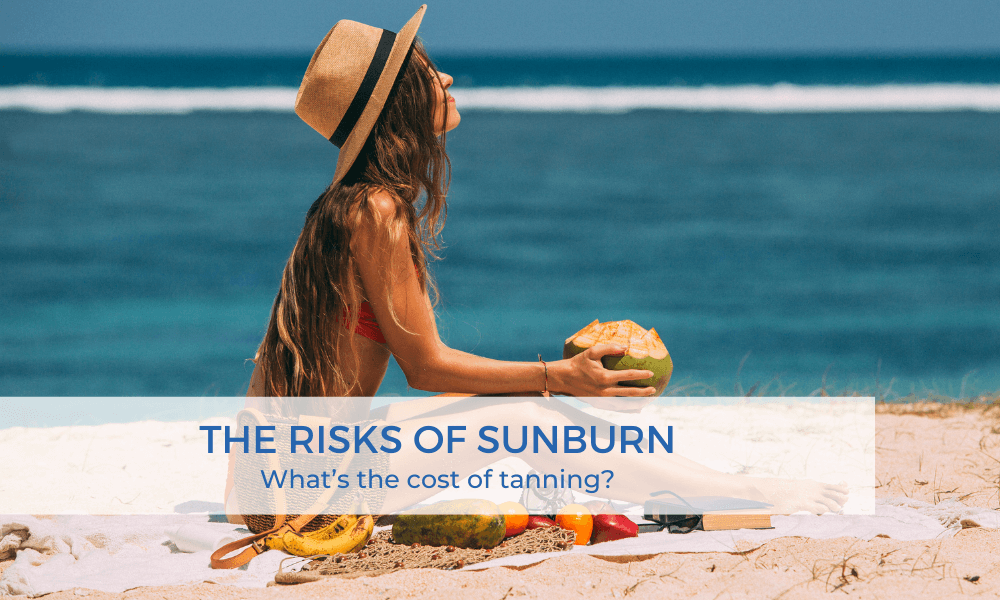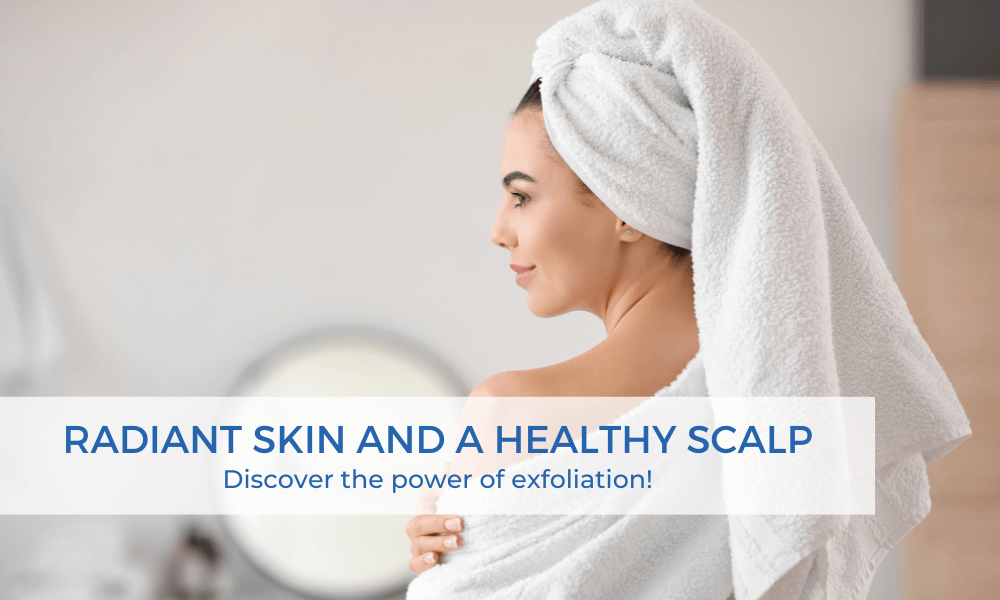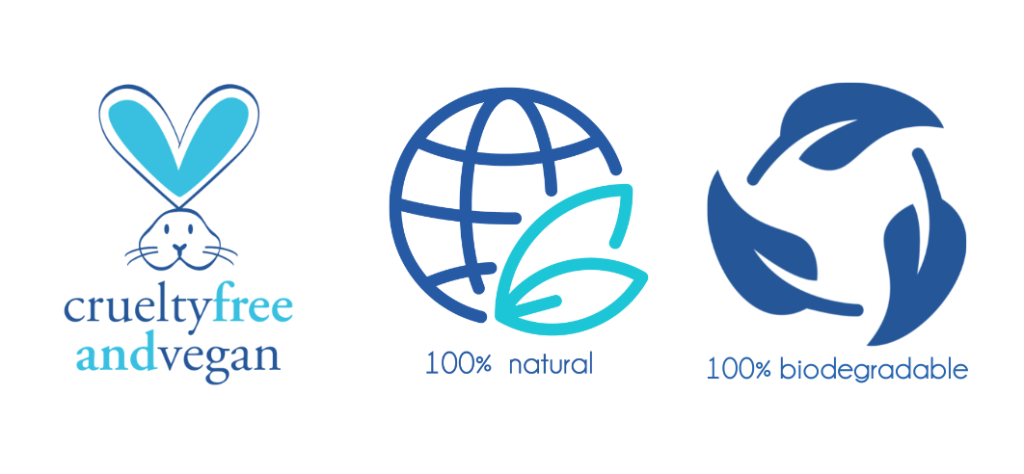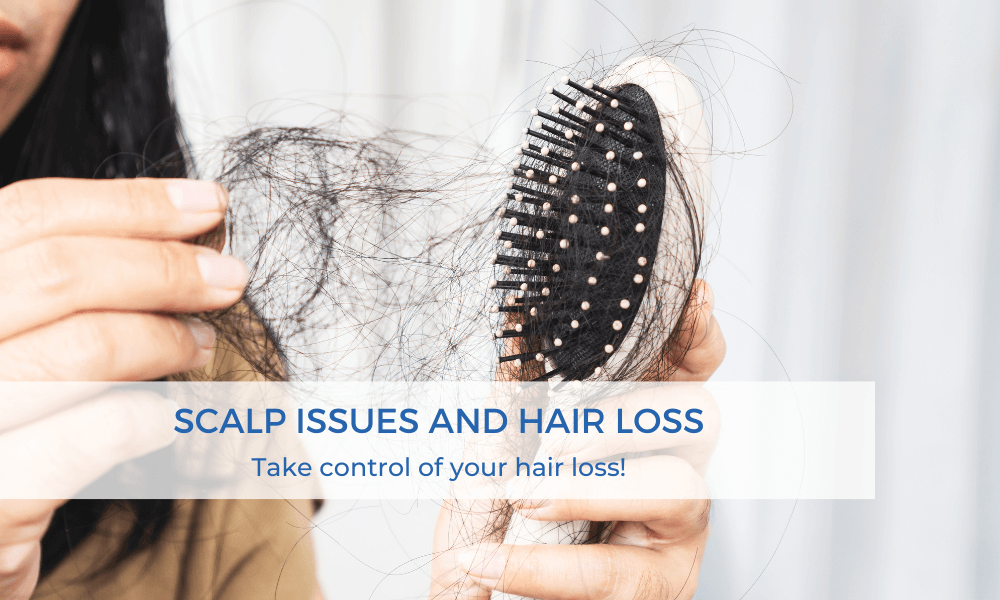
SCALP ISSUES AND HAIR LOSS – TAKE CONTROL OF YOUR SCALP PROBLEM!
There are various hair and scalp types, and not everyone can have thick, voluminous hair; many people have fine, thin hair. However, it is safe to say that an oily, flaky, dry, or inflamed scalp cannot be considered healthy. Scalp issues can be managed, but it requires attention to several factors. Proper product use, lifestyle changes, stress reduction, and effective hair and scalp treatment are essential.
CAUSES OF SCALP issues
Scalp problems and hair loss are often rooted in some form of intolerance. These intolerances disrupt the body’s healthy processes, hindering normal cell function. Many individuals may experience multiple intolerances simultaneously, and their interplay can lead to numerous negative symptoms. An inactive lifestyle, improper eating habits, stress, and other factors are increasingly linked to the development of scalp issues.
Intolerances can also arise due to air pollution and other environmental factors such as chemicals, pesticides, and radiation. An inadequate hair care routine can also lead to intolerances. Various medications, illnesses, vitamin deficiencies, other deficiencies (malnutrition, gut issues), and medical treatments like chemotherapy or hormone therapy can contribute to intolerance. Food-related intolerances are very common today due to numerous artificial substances like fertilizers, preservatives, and contaminated water. Gluten intolerance and dairy protein intolerance are now widespread. Intolerances can also develop from psychological causes such as stress, family problems, divorce, or an unhealthy lifestyle.

It is advisable to avoid all foods that cause intolerances. Continuing to consume these foods can cause inflammation in the body, disrupt the absorption of vitamins and nutrients, and complicate metabolic processes and digestion. Once identified, these triggering foods can be eliminated from the diet, which can help manage many health issues resulting from food intolerances, including hair loss.
STAGES OF SCALP ISSUES
Scalp problems can be divided into three stages. The number of treatments and the healing time largely depend on the stage of the scalp issues.
- Stage 1 symptoms:
Discomfort on the scalp, rapidly greasy scalp, dry scalp, dandruff symptoms, itching, mild redness, more hair loss than usual
- Stage 2 symptoms:
Severe greasiness, severe dryness, greasy roots and dry ends, persistent dandruff, burning, itching scalp, sensitivity to all chemicals, cyclic or persistent symptoms, intense or cyclic hair loss, visible androgenetic alopecia
- Stage 3 symptoms:
Visible scalp problems, significant mental and psychological burden on the patient, ulcerated, irritated scalp, intense or patchy hair loss, severe dandruff, hard-to-remove skin buildup, odorous scalp, advanced androgenetic alopecia or patchy hair loss with continuous, interconnected patches
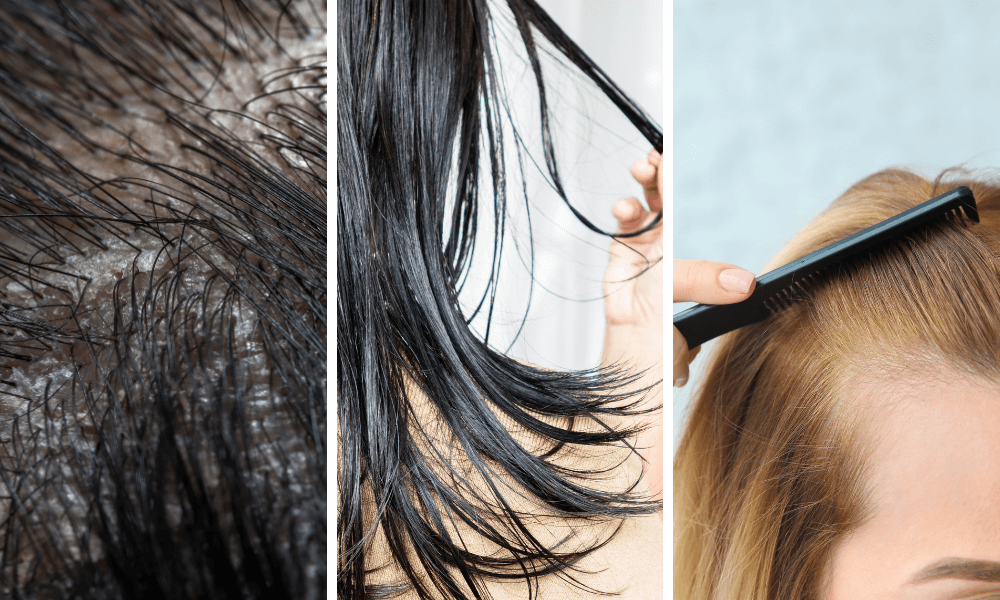
Visiting a trichologist can be a great help, as they assist in diagnosing hair and scalp issues. During an examination, they check which type of hair strands are falling out the most and, if necessary request further lab tests. Additionally, they look for the presence of fungi and bacteria as well as inflammation and anything else that could potentially cause hair loss.
MOST COMMONLY IDENTIFIED SCALP ISSUES
Oily Scalp and Excessive Sebum Production
This issue is characterized by increased sebum secretion, which can lead to the formation of dandruff. Excessive sebum production results in overly greasy hair. Due to the accelerated process of cell death caused by increased sebum production, the dead cells stick to the scalp instead of falling out, leading to dandruff. Another symptom of seborrhea is frequent, excessive hair loss.
Oily Dandruff
Oily dandruff can accompany an oily scalp. The hair appears oily, acidic, and greasy while having an odor. The dandruff does not fall off but remains attached to the scalp and hair strands, appearing as yellowish-white or yellowish-brown, round flakes soaked in sebum. These flakes, sticking to the scalp and hair for 2-3 cm, result from bacteria breaking down the fat, leading to increased sebum production.
Dry Scalp
Dry scalp results from decreased sebum secretion, leading to dry, dull, rough, and hard-to-manage hair. The hair is brittle, split at the ends, and difficult to comb. Dandruff in this case is often caused by an overgrowth of fungi, which increases the shedding of the skin’s outer layer.
Special types of dandruff include seborrheic dermatitis, psoriasis, and eczema. Treating these conditions requires extensive professional knowledge and expertise.
TYPES OF HAIR LOSS AND TREATMENT OPTIONS
There are two types of hair loss: normal and pathological. Losing up to 100 hairs per day is entirely normal and natural. Pathological hair loss includes hormonal hair loss, diffuse hair loss, alopecia areata, and complete body hair loss. There are also specific types of hair loss caused by fungal infections, physical damage, tumors, or autoimmune diseases. A thorough examination, starting with lab tests, is advisable.
OUR TIP: OXYGEN THERAPY
Oxygen therapy can help with hair loss by providing hair follicles with adequate oxygen, vitamins, and minerals, which revitalize them, strengthen and thicken the hair strands, and cleanse the scalp, restoring its proper pH level. Typically, 5-10 sessions combined with a home hair care routine are sufficient to treat the problem. Oxygen therapy is beneficial for androgenetic alopecia, hormonal hair loss, autoimmune hair loss, diffuse hair loss, and alopecia areata.
For home use, we recommend our Hair Loss Shampoo and Hair Loss Mask products. Both items contain valuable active ingredients: vitamins, coconut oil, maca root extract, argan oil, rosemary oil, and flaxseed oil. They are most effective when used together.

Anti-Hair Loss Add On Bundle
We recommend our Hair Loss Shampoo and Hair Loss Mask for both mild and severe hair loss. Additionally, using a scalp spray made from Vitamin Serum, H2O Thermal, and Pure Aloe Vera is highly effective. The Vitamin Serum contains essential vitamins and minerals necessary for hair and skin health. The Oxygeni Hair H2O Thermal mineral complex delivers a unique amount of minerals and vitamins to the skin and hair, promoting their health and vitality. When mixed with Pure Aloe Vera, serums and oils penetrate deeper into the skin, absorbing more easily and quickly without leaving a greasy, oily residue.
Internal Support for Hair Loss Treatment
Preventing and reducing hair loss requires adequate nutrient intake, including proteins, vitamins B, C, D, E, and minerals. Natural vitamins and dietary supplements are free from harmful side effects. Pure active ingredients contain no added synthetic substances, only natural compounds, meaning your body does not need to filter out unnecessary materials, allowing the active ingredients to be more effectively utilized.
OXYGEN THERAPY AND OXYGENI HAIR PRODUCT REVIEWS
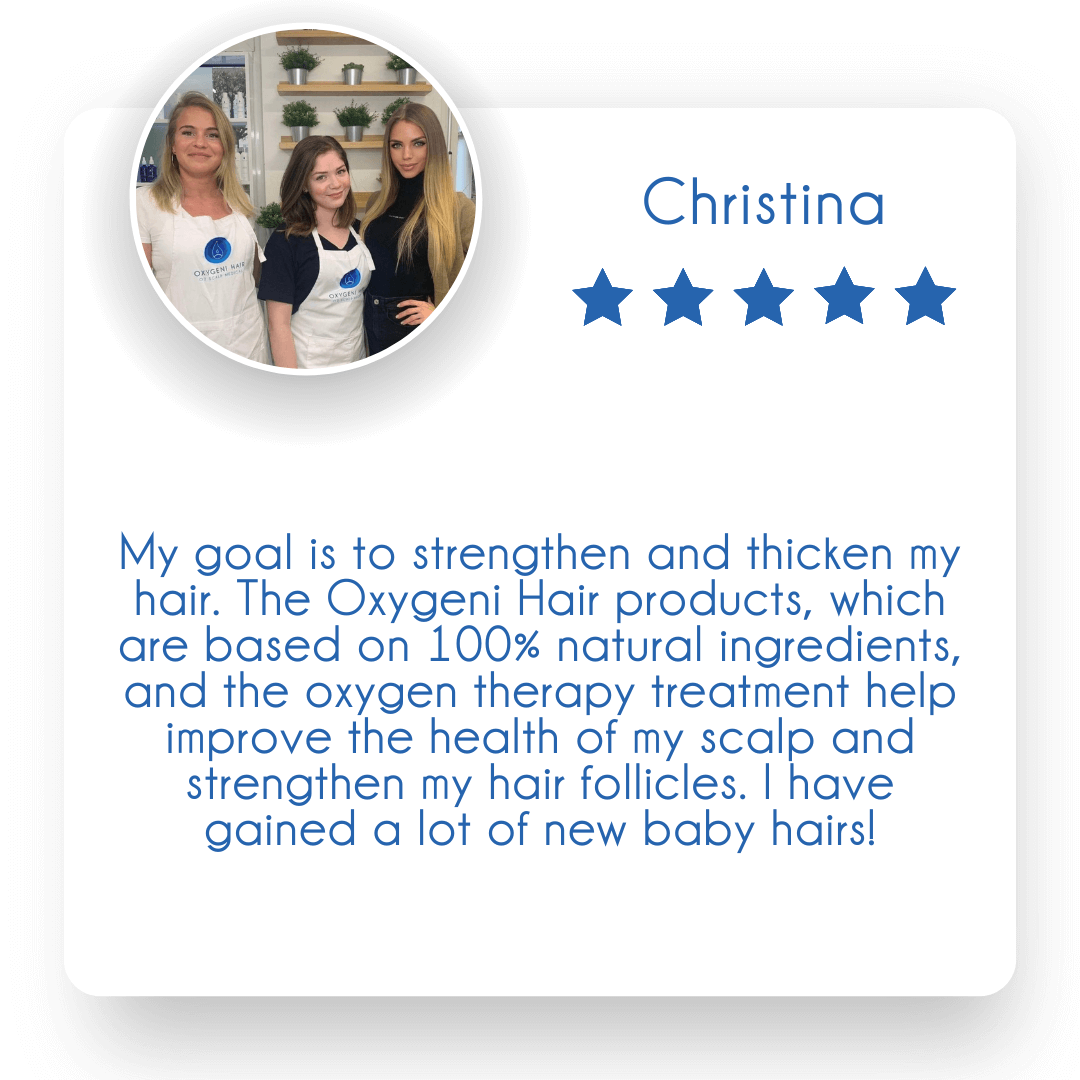

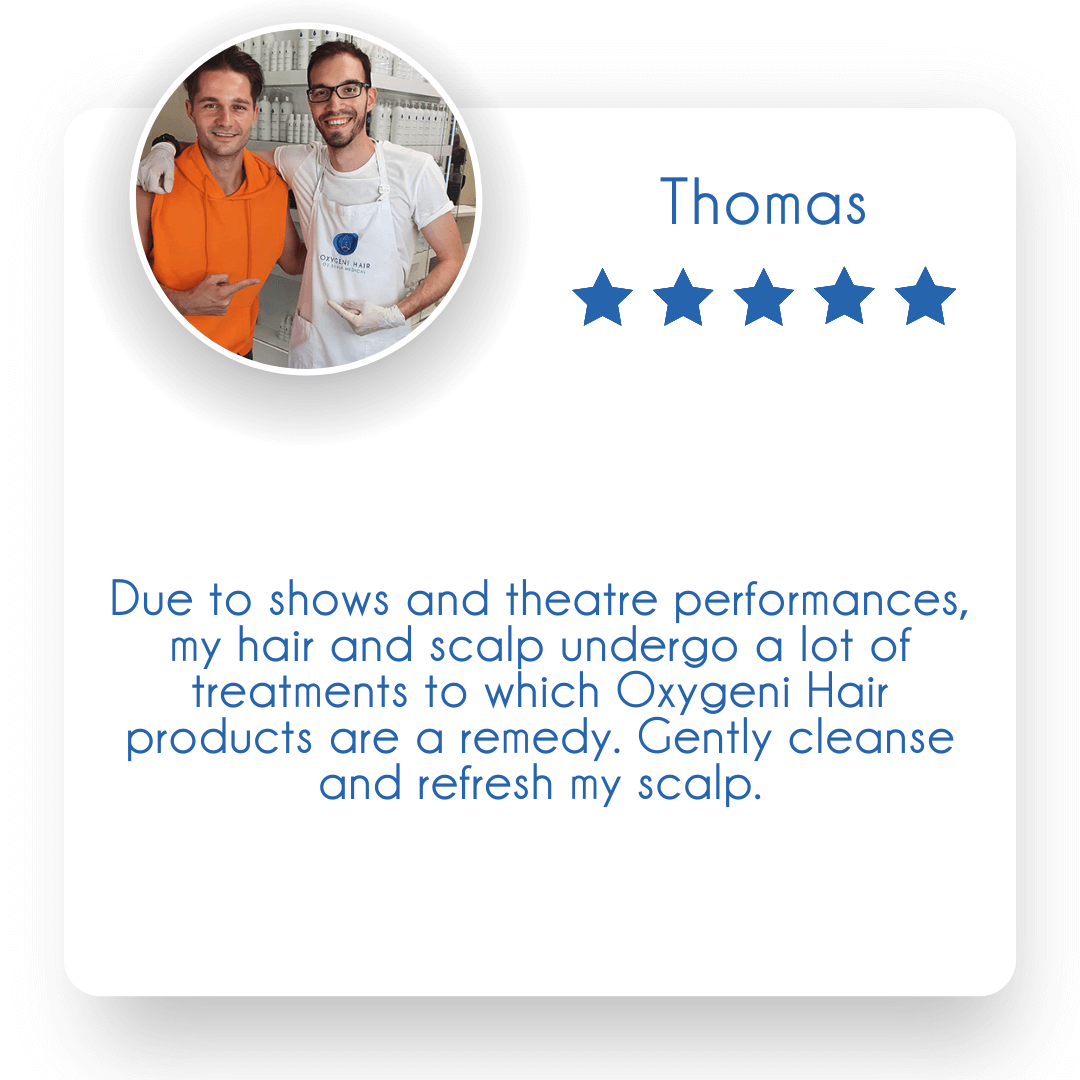
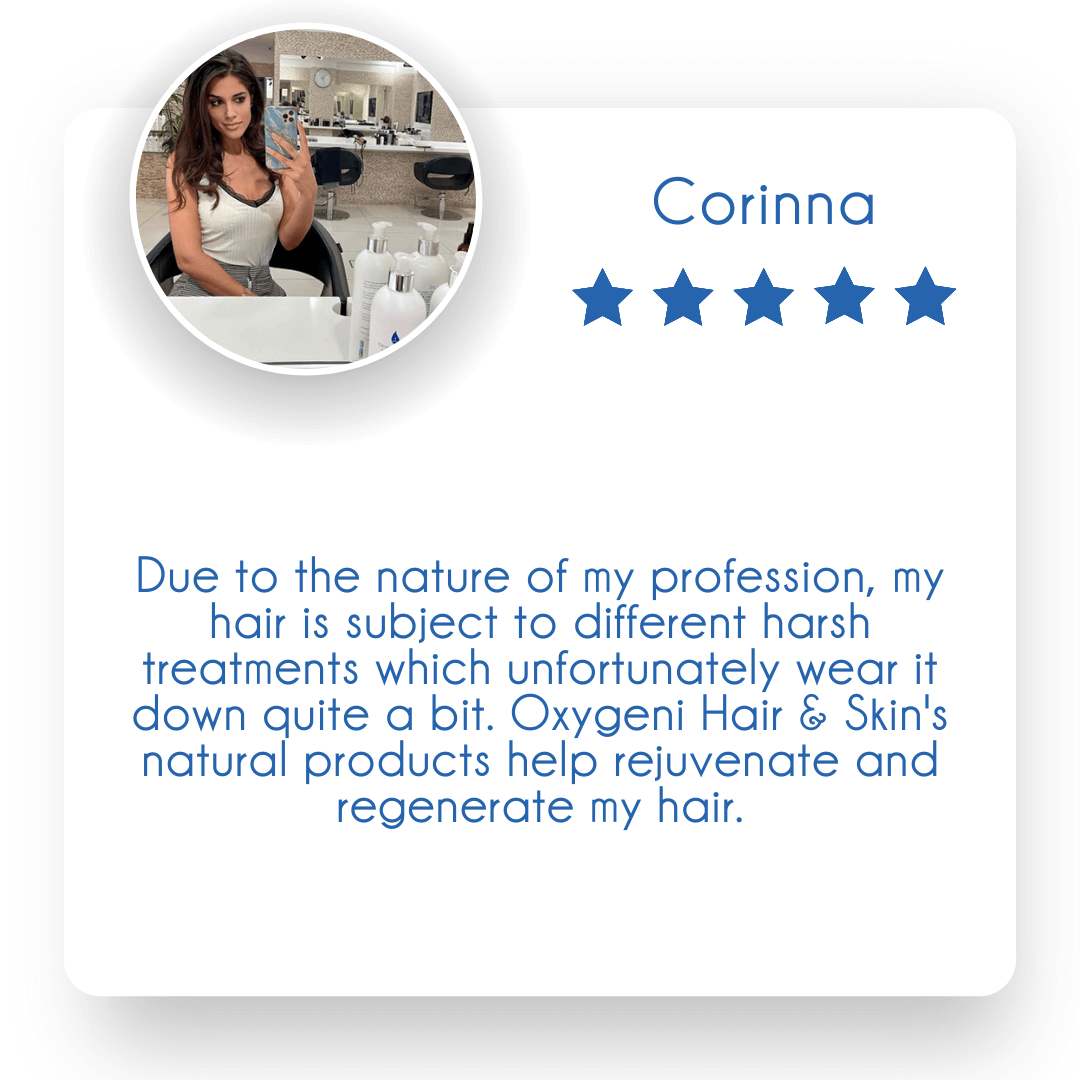
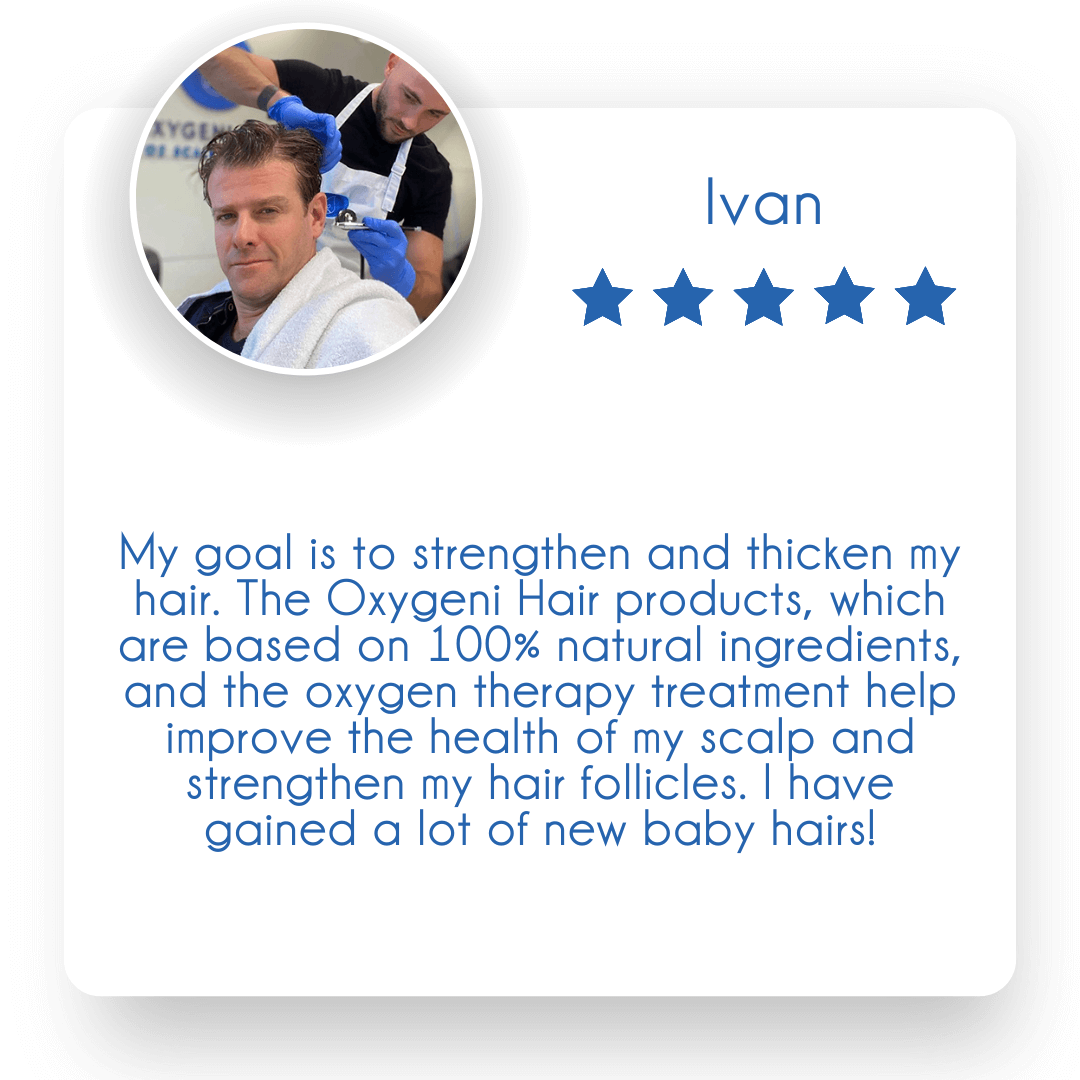
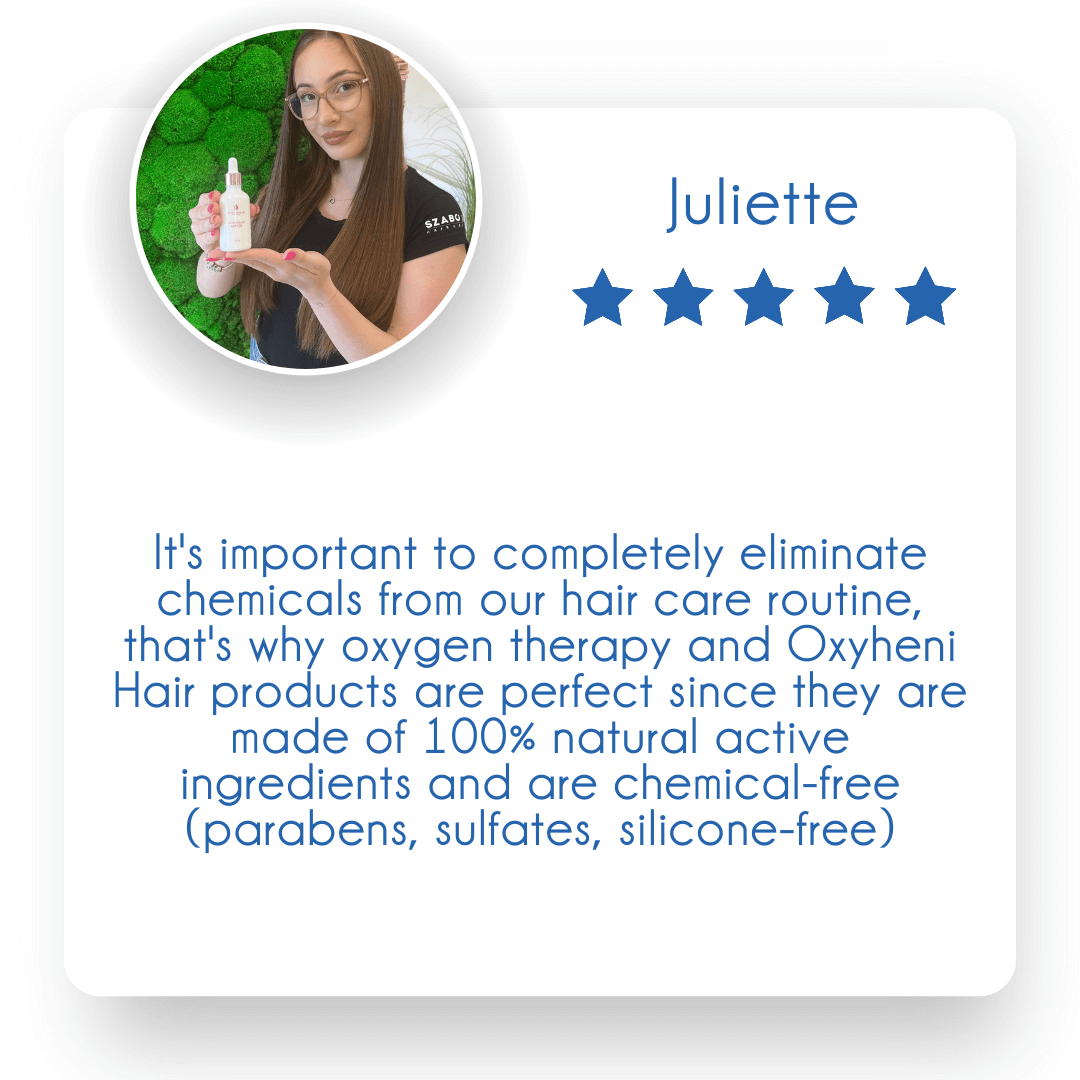
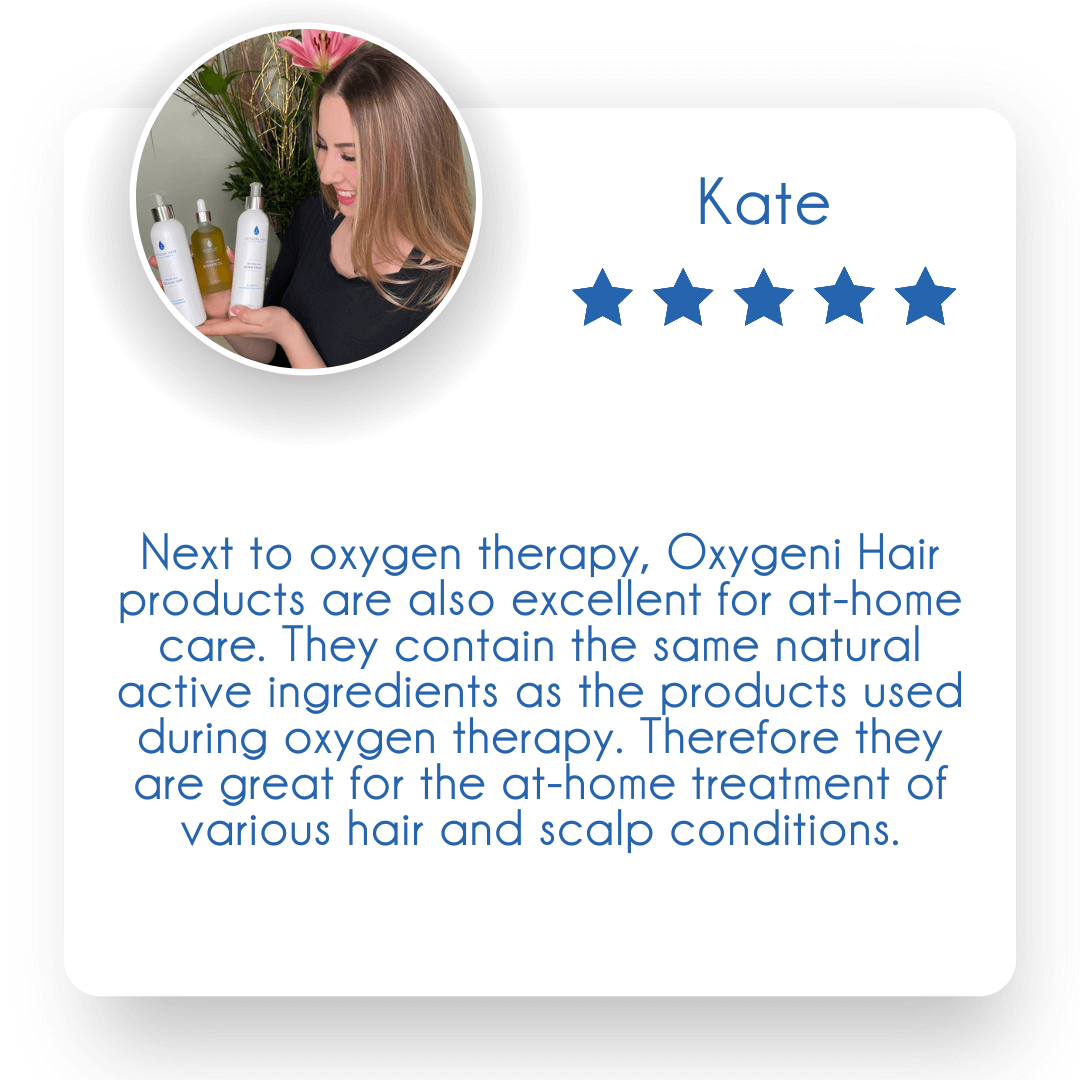
Follow us on our social media platforms!
